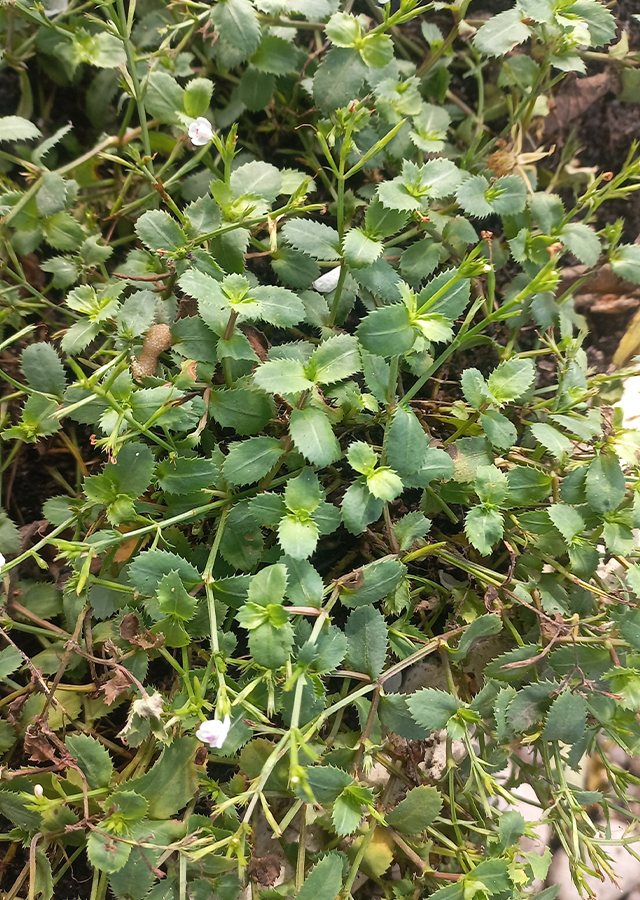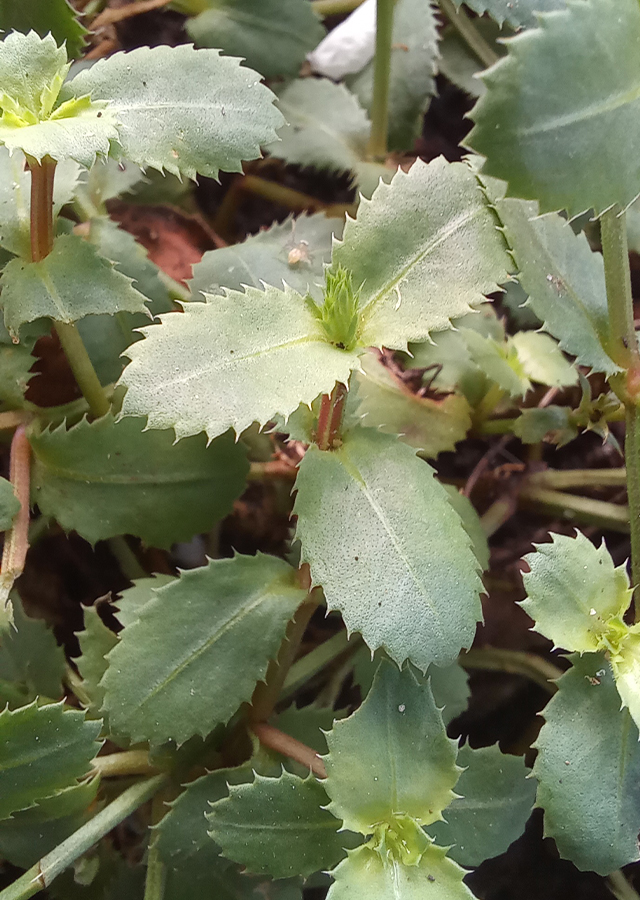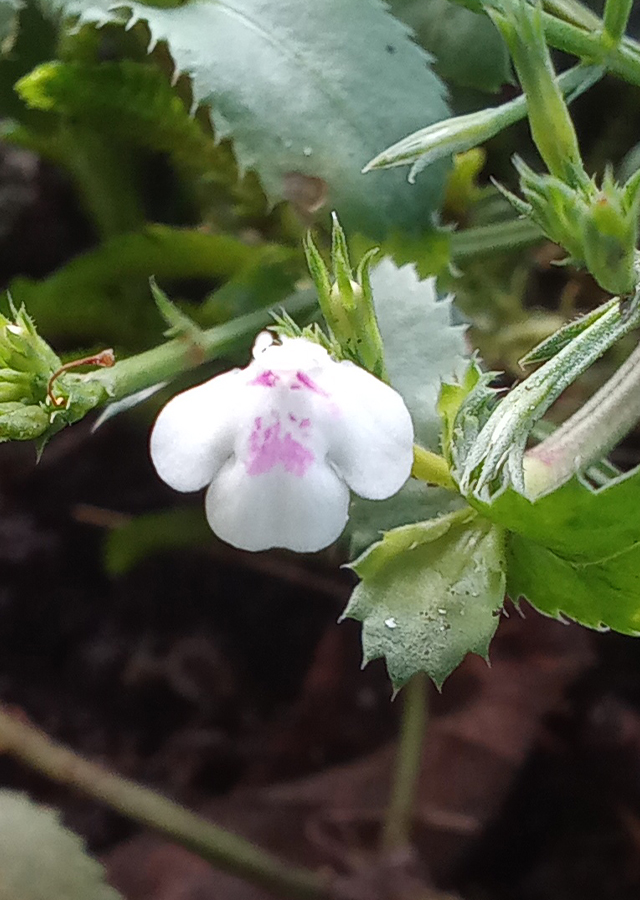Fringed Pimpernel
Bonnaya ciliata (Colsm.) Spreng.
Linderniaceae
Location in our garden
Beneficial Weed



Synonym
Bonnaya brachiata Link & Otto
Lindernia ciliata (Colsm.) Pennell
Lindernia serrata (Roxb.) F.Muell.
Habitus
Herbaceous. An erect, annual plant growing up to 20 cm tall.
Part Used
Leaves
The Whole Plant
Growing Requirements
Full Sunshine
Habitat
Roadside
Grassland
Terrestrial
Overview
Bonnaya ciliata is a species of weed that is widespread in Cambodia, India, Japan (Ryukyu Islands), Laos, Malaysia, Myanmar, the Philippines, Vietnam, and Northern Australia. In its utilization, this weed plant turns out to have good health benefits and has traditionally been used as a medicinal plant. This species is widely distributed, common and without any threats. The plant is classified as 'Least Concern' in the IUCN Red List of Threatened Species (2013).
Vernacular Names
No information found. Need further search.
Agroecology
Grows on sunny or lightly shaded, often grassy localities, wasteland, roadsides, fallowed fields, rainfed rice fields, moist places, generally on light soils, often gregarious, at elevations from sea-level up to 1,300 m. Prefers sunny, or lightly shaded, disturbed sites in light, sandy or gravelly, soils. It prefers moist sites and can tolerate several days of submergence.
Morphology
- Roots - tap roots, white or brown.
- Stems - much branched, the branches are bent and sometimes form roots at the last node, rectangular, dense, glabrous or hairy. No stipules.
- Leaves - opposite, elliptic-oval, leaf base rounded, leaf tip blunt to sharp (acute), leaf margin aristate-dentate (toothed), sessile.
- Fruits - capsule about 1-1.5 cm long, linear, winged septum, extending beyond the petals.
- Seeds - black.
Cultivation
Propagated by seeds.
Chemical Constituents
Sitosterol, stigmasterol, lup-20(29)en-3β-ol, flavonoids, phenolic compounds.
Traditional Medicinal Uses
- The sap from the crushed leaves is given after childbirth. In Taiwan, the plant is considered an effective cure for menorrhagia.
- Medicines after childbirth.
- Treat gonorrhea, jaundice, urinary disorders, headaches, liver complaints, spleen disease, constipation, cough, intestinal worms, skin diseases, diabetes, anemia, bronchitis, asthma, reduce fever, overcome loss of appetite, hypertension.
- Has activity as a hepatoprotective (liver protector).
Part Used
Reference Sources
- Royal Botanic Gardens. Plants of the World Online: Bonnaya ciliata (Colsm.) Spreng.. https://powo.science.kew.org/taxon/urn:lsid:ipni.org:names:799773-1. 11-04-22.
- Tropical Plants Database, Ken Fern. Lindernia ciliata. http://tropical.theferns.info/viewtropical.php?id=Lindernia+ciliata. 11-04-22.
- Umakrithika S. 2021. A comprehensive overview of plant genus: Lindernia. Journal of Pharmacognosy and Phytochemistry, 10(5): 42-48.
- Pl@ntNet. Riceweeds en - Linderniaceae - Lindernia ciliata (Colsm.) Pennell. http://publish.plantnet-project.org/project/riceweeds_en/collection/collection/information/details/LIDCI. 11-04-22..

